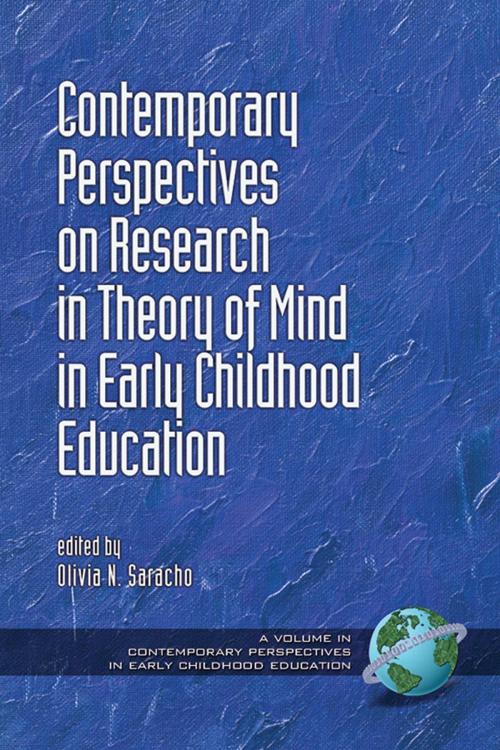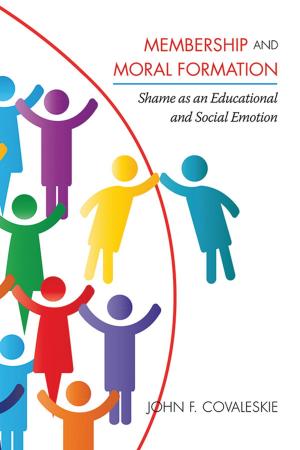Contemporary Perspectives on Research in Theory of Mind in Early Childhood Education
Nonfiction, Reference & Language, Education & Teaching, Preschool & Kindergarten, Elementary| Author: | ISBN: | 9781623965136 | |
| Publisher: | Information Age Publishing | Publication: | January 1, 2014 |
| Imprint: | Information Age Publishing | Language: | English |
| Author: | |
| ISBN: | 9781623965136 |
| Publisher: | Information Age Publishing |
| Publication: | January 1, 2014 |
| Imprint: | Information Age Publishing |
| Language: | English |
Over the last 35 years, studies focusing in young children’s knowledge about the mental world have developed into an important area. This body of social knowledge is called theory of mind, which refers to the individuals’ ability to interpret and anticipate the other individuals’ thinking, feeling, and behavior based on their interpretation of the situation. Many researchers and theorists believe that a representational theory of mind offers a basis for various critical facets of socialcognitive performance, such as teaching and learning, lying and pretending, making and keeping friends, and social learning more generally. The purpose of this volume is to share a collection of research strands on theory of mind research. It describes its historical roots and suggests improved alternatives. The focus of the volume is to provide a review and critical analysis of the literature on a contemporary domain of knowledge on young children’s Theory of Mind. For several decades scholarly research on theory of mind has been flourishing and a collection of new publication outlets have emerged such as the ones reviewed in the volume, which offers a thorough critical analysis of the research in contemporary perspectives on research in theory of mind in early childhood education. The researchers who conducted the critical analyses of the reseearch focused on understanding the mind in relation to (1) young children, (2) several assessment procedures, (3) metacognitive and neuroscientific processes, (3) emotion and educational representations, (4) interaction of social and cultural elements, and (5) inferences and future research directions. The work of these scholars can help guide those researchers who are interested in pursuing studies in early childhood theory of mind in a specific area of study.
Over the last 35 years, studies focusing in young children’s knowledge about the mental world have developed into an important area. This body of social knowledge is called theory of mind, which refers to the individuals’ ability to interpret and anticipate the other individuals’ thinking, feeling, and behavior based on their interpretation of the situation. Many researchers and theorists believe that a representational theory of mind offers a basis for various critical facets of socialcognitive performance, such as teaching and learning, lying and pretending, making and keeping friends, and social learning more generally. The purpose of this volume is to share a collection of research strands on theory of mind research. It describes its historical roots and suggests improved alternatives. The focus of the volume is to provide a review and critical analysis of the literature on a contemporary domain of knowledge on young children’s Theory of Mind. For several decades scholarly research on theory of mind has been flourishing and a collection of new publication outlets have emerged such as the ones reviewed in the volume, which offers a thorough critical analysis of the research in contemporary perspectives on research in theory of mind in early childhood education. The researchers who conducted the critical analyses of the reseearch focused on understanding the mind in relation to (1) young children, (2) several assessment procedures, (3) metacognitive and neuroscientific processes, (3) emotion and educational representations, (4) interaction of social and cultural elements, and (5) inferences and future research directions. The work of these scholars can help guide those researchers who are interested in pursuing studies in early childhood theory of mind in a specific area of study.















